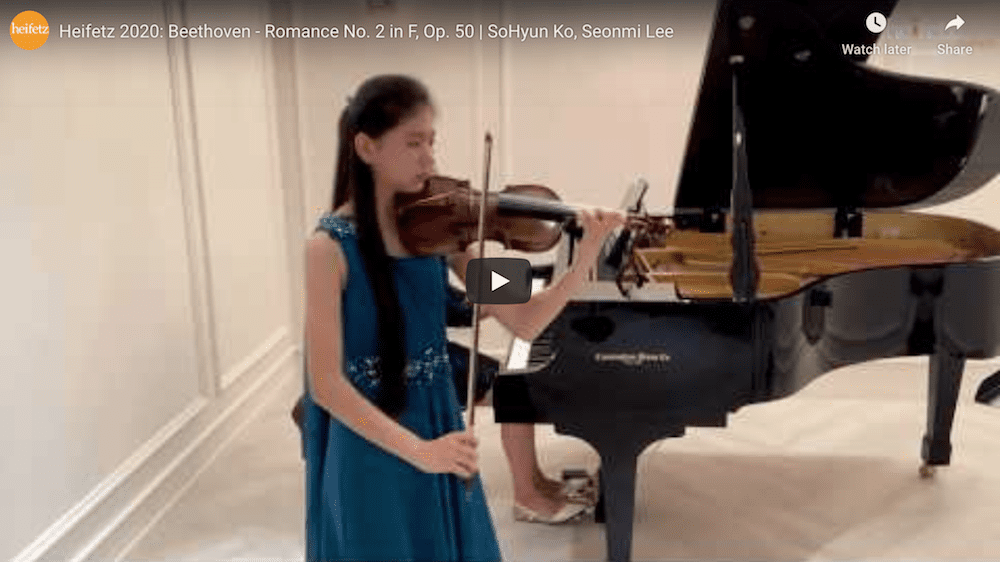Our Video of the Week comes from Seoul, South Korea, where fourteen year old #Heifetz2020 student SoHyun Ko is joined (in person, no less) by pianist Seonmi Lee for a stunning performance of Beethoven’s Romance No. 2 in F, Op. 50. This piece was recorded exclusively for our Opening Concert & Convocation, the traditional start to a Heifetz summer, which we first broadcast on June 27, 2020.
You may remember SoHyun from her previous summers here in Staunton as part of our HeifetzPEG program in 2018 and 2019. Some of her showstopping performances include Sarasate’s Zigeunerweisen, Paganini’s Caprice No. 1, and Shostakovich’s 5 Pieces. While those pieces dazzled our audiences here in the Shenandoah Valley (and made quite a splash online as well), this performance reflects a more nuanced side of SoHyun’s remarkable playing, and indeed reflects her growth as she has “graduated” from our HeifetzPEG Program (for ages 9-13) to become one of the youngest students of the main program.


A portrait of a young Beethoven circa 1803, two years before the publication of Romance No. 2
The piece was originally composed for a reduced orchestra consisting of a violin solo and an orchestra composed of strings, two oboes, two bassoons, two horns and flute, but the arrangement for violin and piano highlights the harmonic beauty of the melody and delicate accompaniment. Beethoven dedicated the piece, along with it’s companion Romance No. 1 in G Major, to his resident virtuoso violinist, Ignaz Schuppanzigh. Romances were all the rage at the time, and would continue to flourish throughout the Romantic Period itself during the 19th century. The sonorous melody is especially well suited to the designation of “adagio cantabile” (cantabile means singable), and one can plainly hear the pining in the main theme, which returns throughout the piece’s rondo form. While compositions that fell under the label of romances need not have been concerned with love and relationships, one can’t help but hear that particular type longing in this piece, as Beethoven is believed to have written it at the end of a failed romantic affair. As SoHyun says in her introduction, and captures so evocatively in her playing, you can hear “the pain of young Beethoven’s lost love.”
Enjoy this stunning performance, and tune in for all of our daily broadcasts all summer long through Heifetz Rubato: The Virtual Concert Hall.


